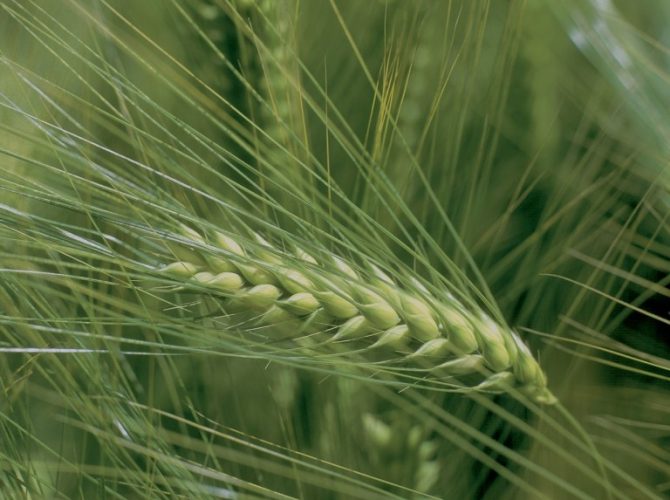Amistar reducing BYDV risk this autumn.
19th September 2021

Variety selection and making the most of the genetic advances of new varieties has become an increasingly important part of integrated crop management to help reduce the risk of pests, disease and weed problems on farm.
One of the latest genetic advances in the armoury for virus control is the BYDV tolerant variety Amistar from KWS. Tolerant varieties are still susceptible to aphid attack and may show some yellowing but critically this will not result in significant yield loss. Trials by KWS have shown that under high virus pressure Amistar showed minimal yield losses in comparison to loses up to 19% in non-tolerant varieties.
Mild autumns are favourable for aphids and virus transmission such as experienced this September. Data from the AFBI cereal aphid monitoring project has shown that numbers of the bird cherry oat aphid, a main carrier of BYDV are already high this September, well above the 2017-2020 average. With drilling already underway into warm damp seedbeds, crops will emerge quickly and be at risk from aphid attack.
Selecting a tolerant variety such as Amistar offers protection for September drilling, mitigating the risk of BYDV and allowing drilling to commence when ground conditions are good and spreading the autumn workload on farm.
Hybrid genetics in barley varieties such as Bazooka, Kingsbarn and Thunderbolt are known for their consistent performance in terms of both yield and quality have a flexible drilling window and are well adapted to September drilling. Hybrid barley will outyield conventional varieties across a range of drilling dates with the greatest advantage seen from early drilling. They also have the added advantage of producing an extra 5-10% more straw than conventional varieties.
Hybrid genetics creates more vigorous plants in terms of shoot and root growth. Hybrid plants produce a large root mass and are well placed as a third barley in the rotation, being less prone to take-all, an important factor which can be more problematic following early drilling into warm soils. Additionally, hybrids are more competitive against brome and can used as an integrated cultural method of reducing brome across the rotation.
For further information and advice on Amistar, hybrid barley or variety selection for your farm please contact your local Technical Sales Specialist or the Fane Valley Agronomy and Forage team on 028 9261 0485.

